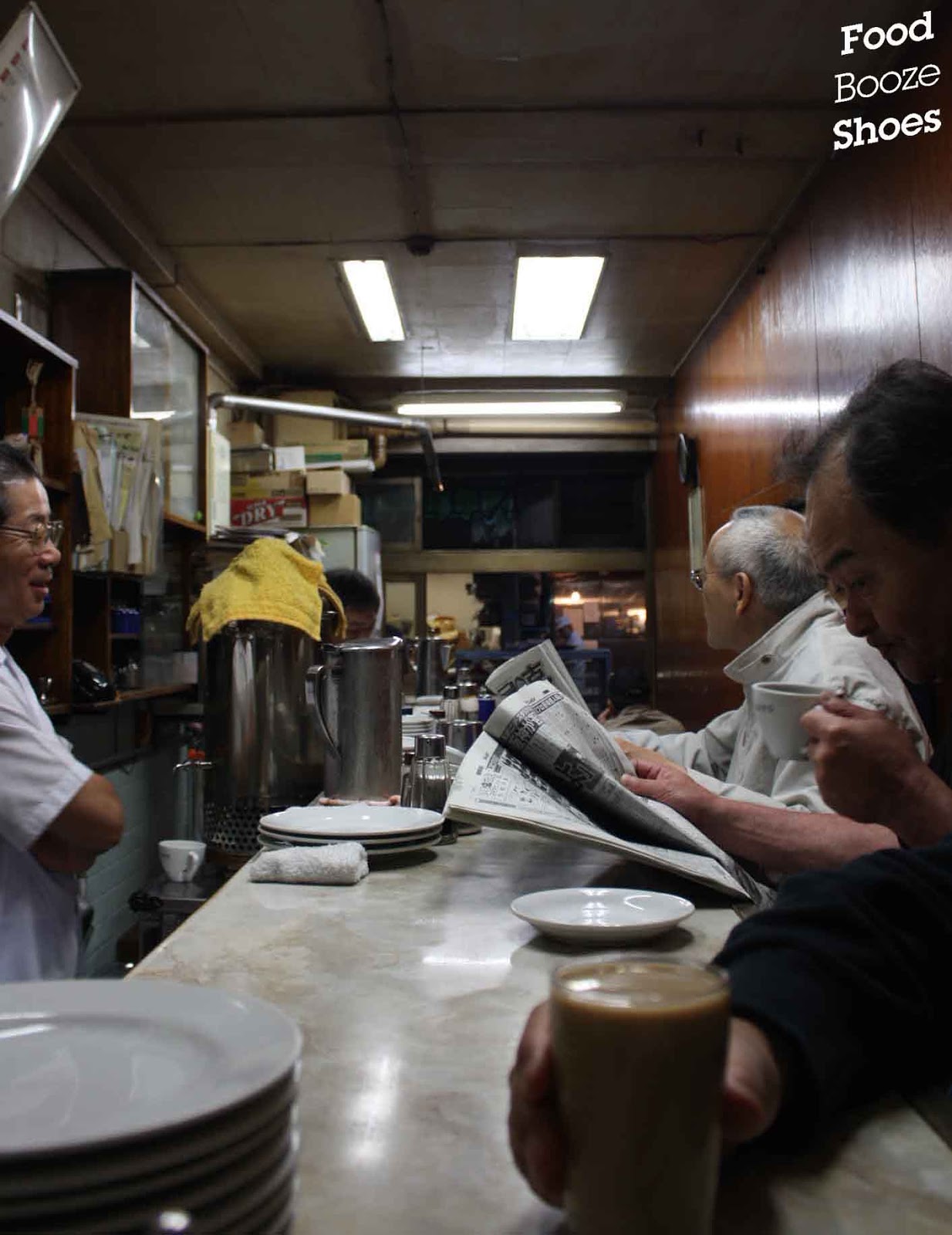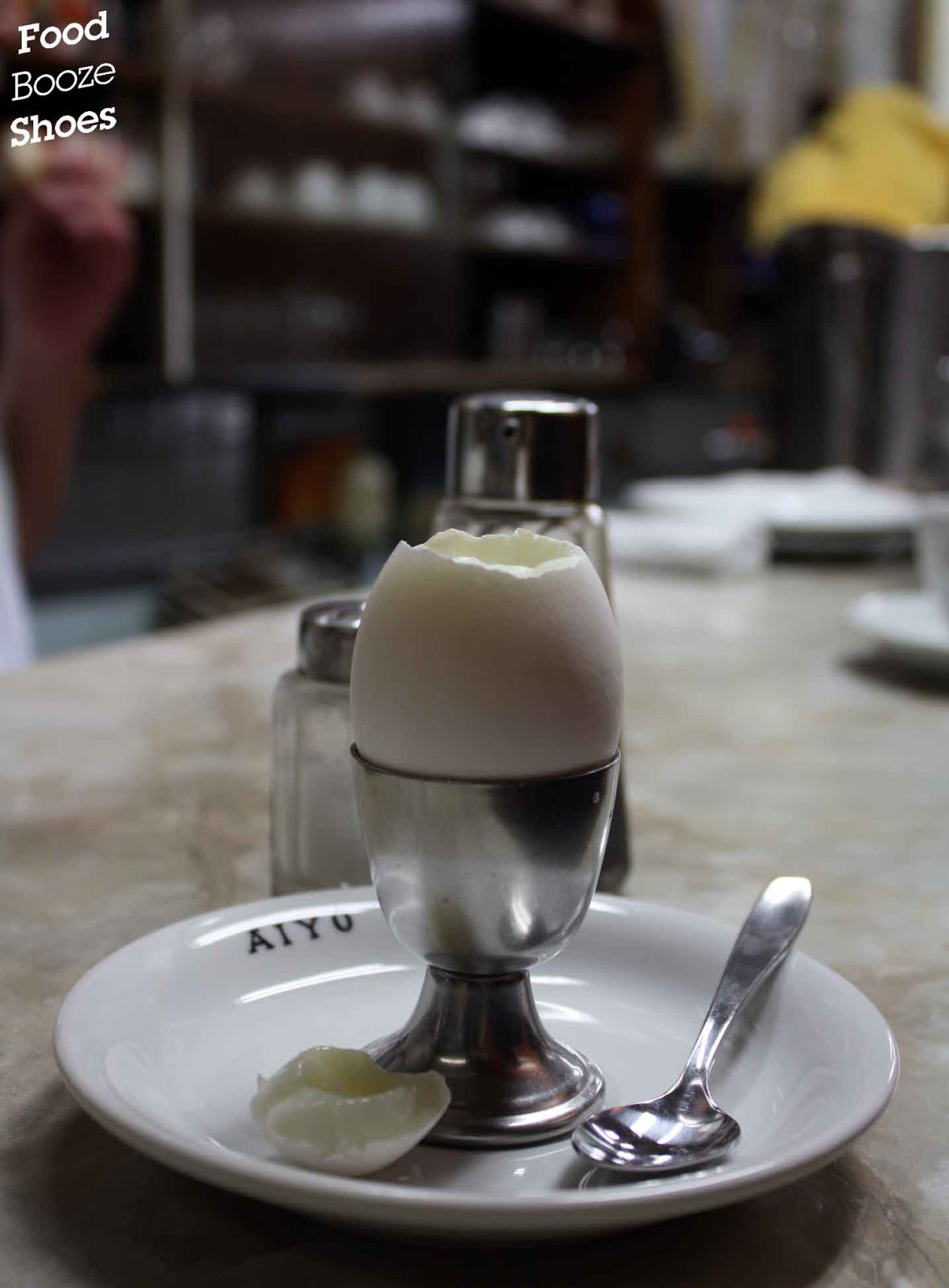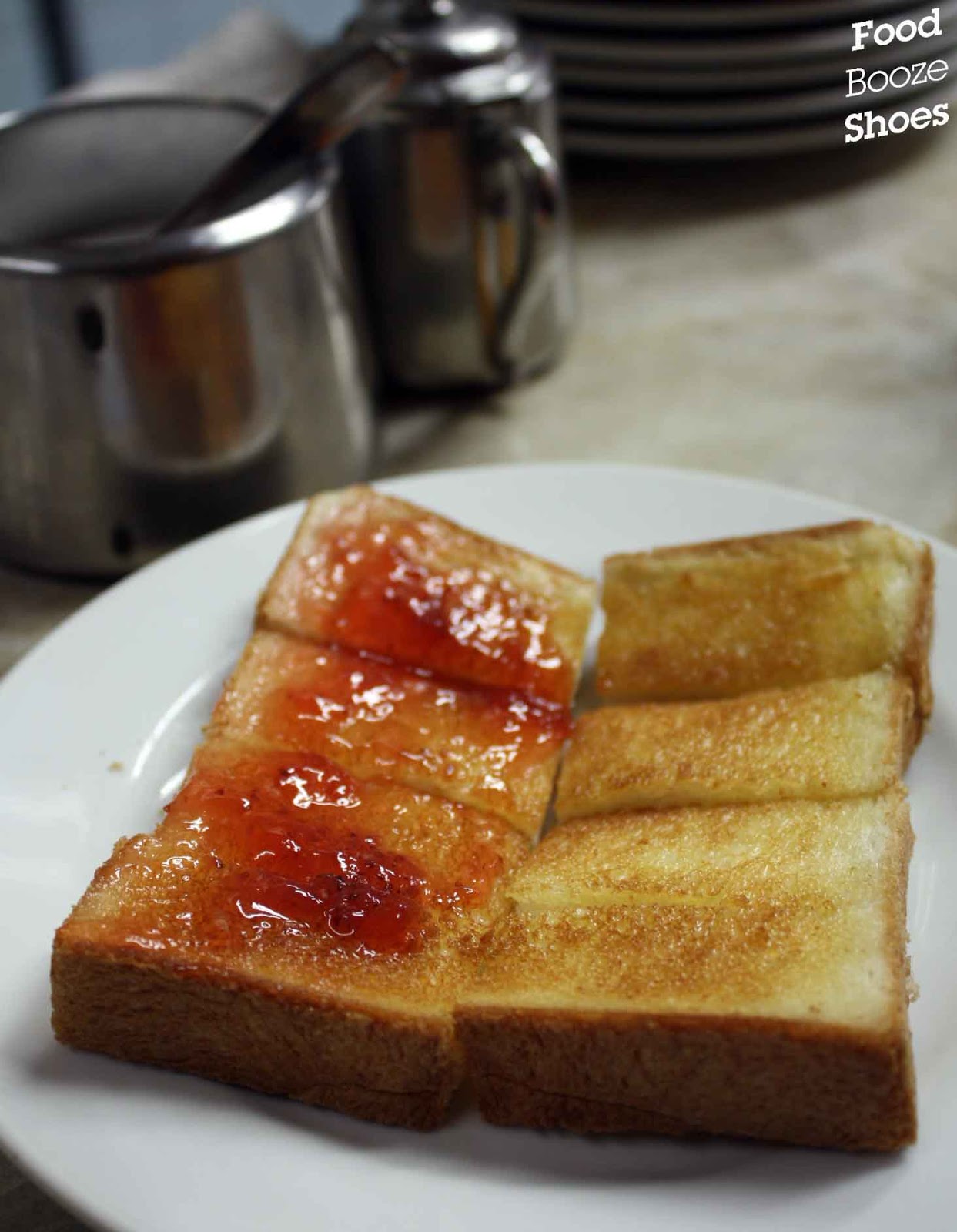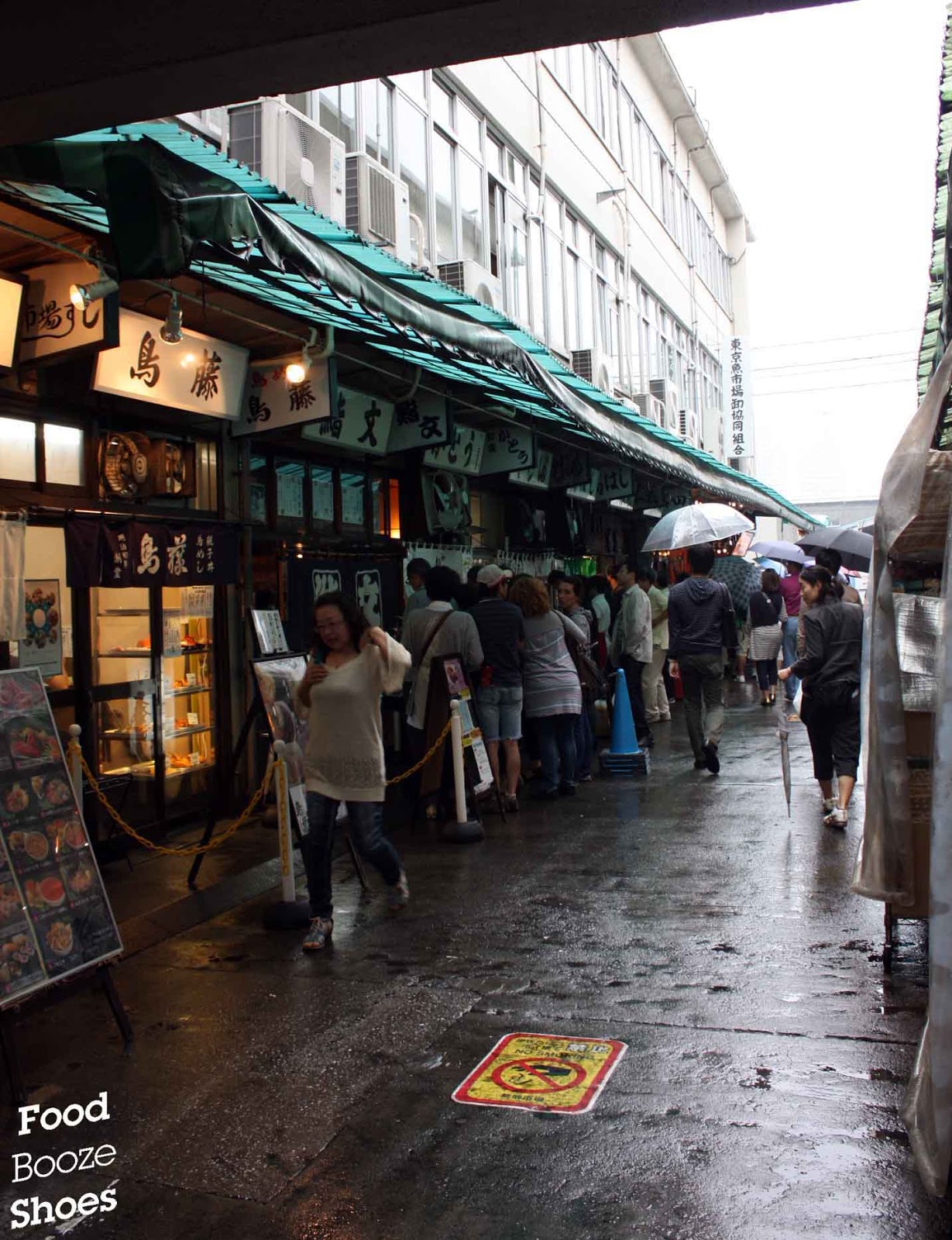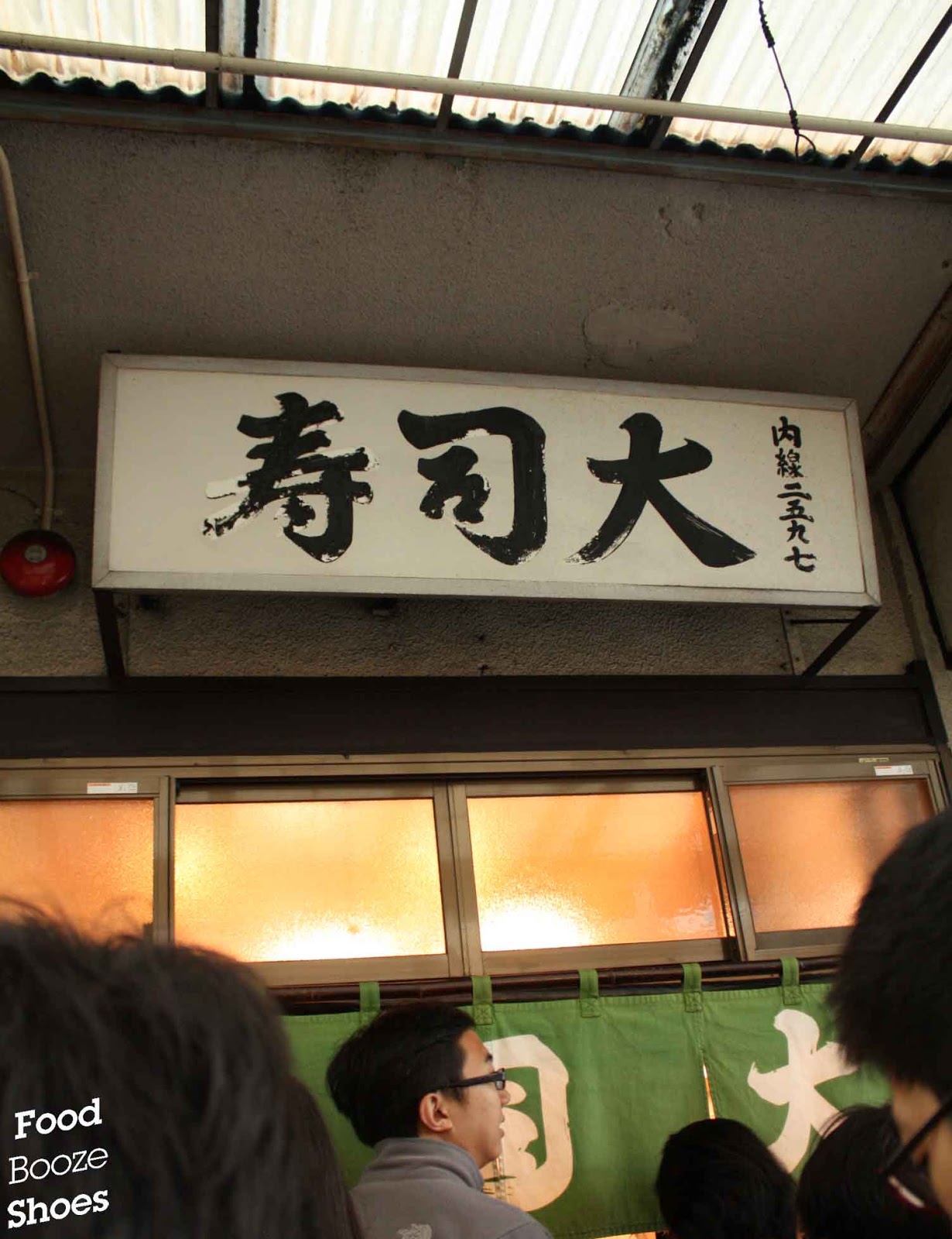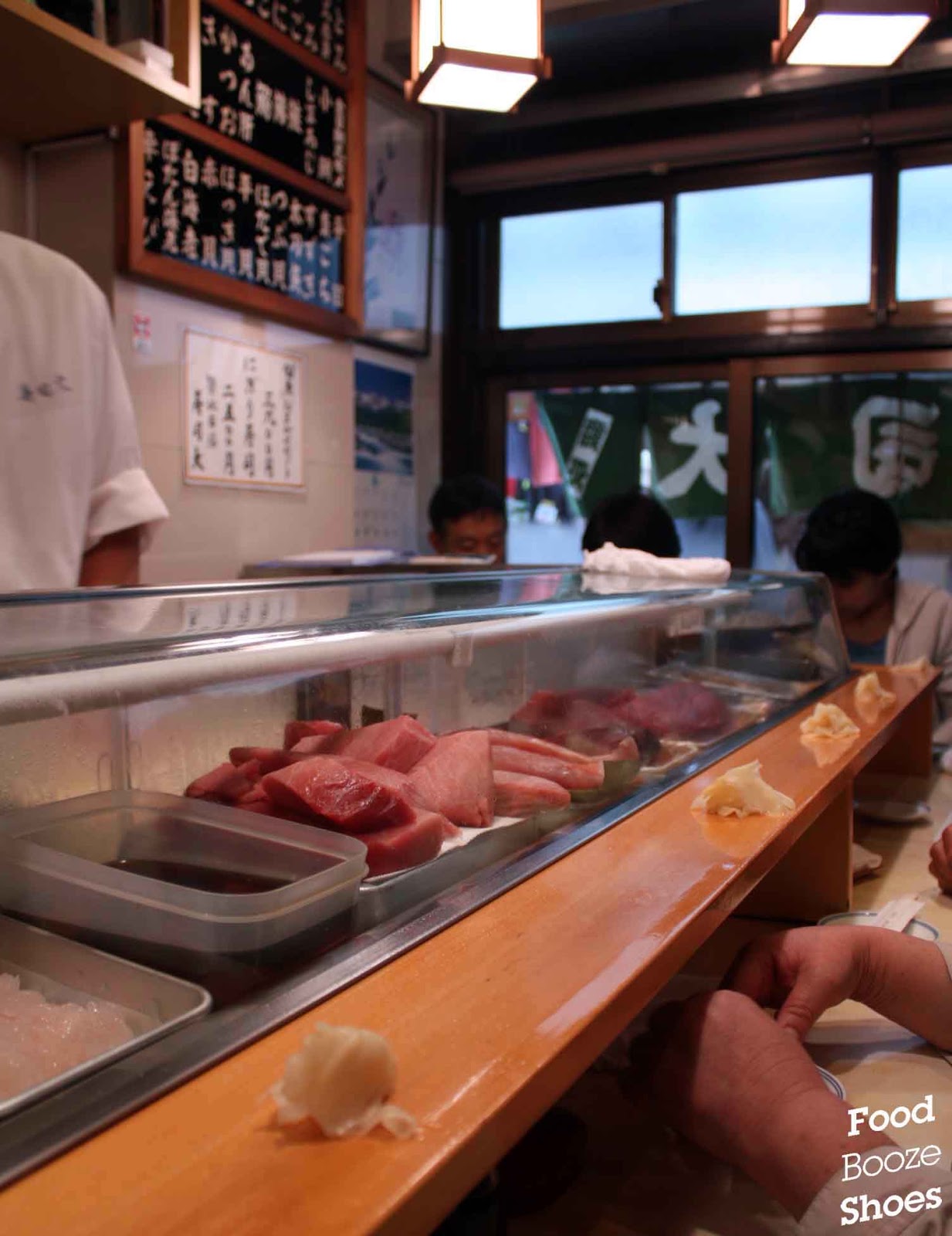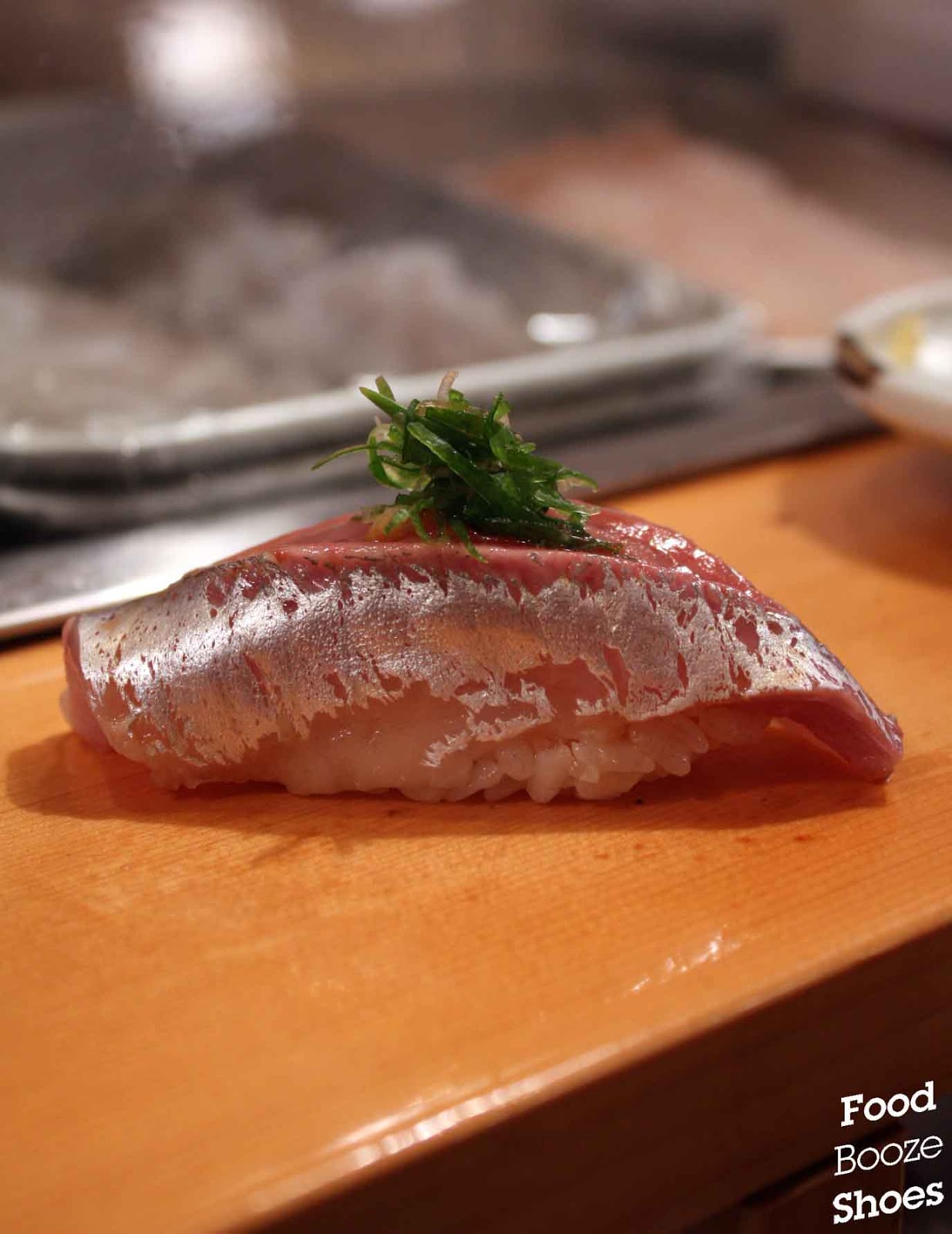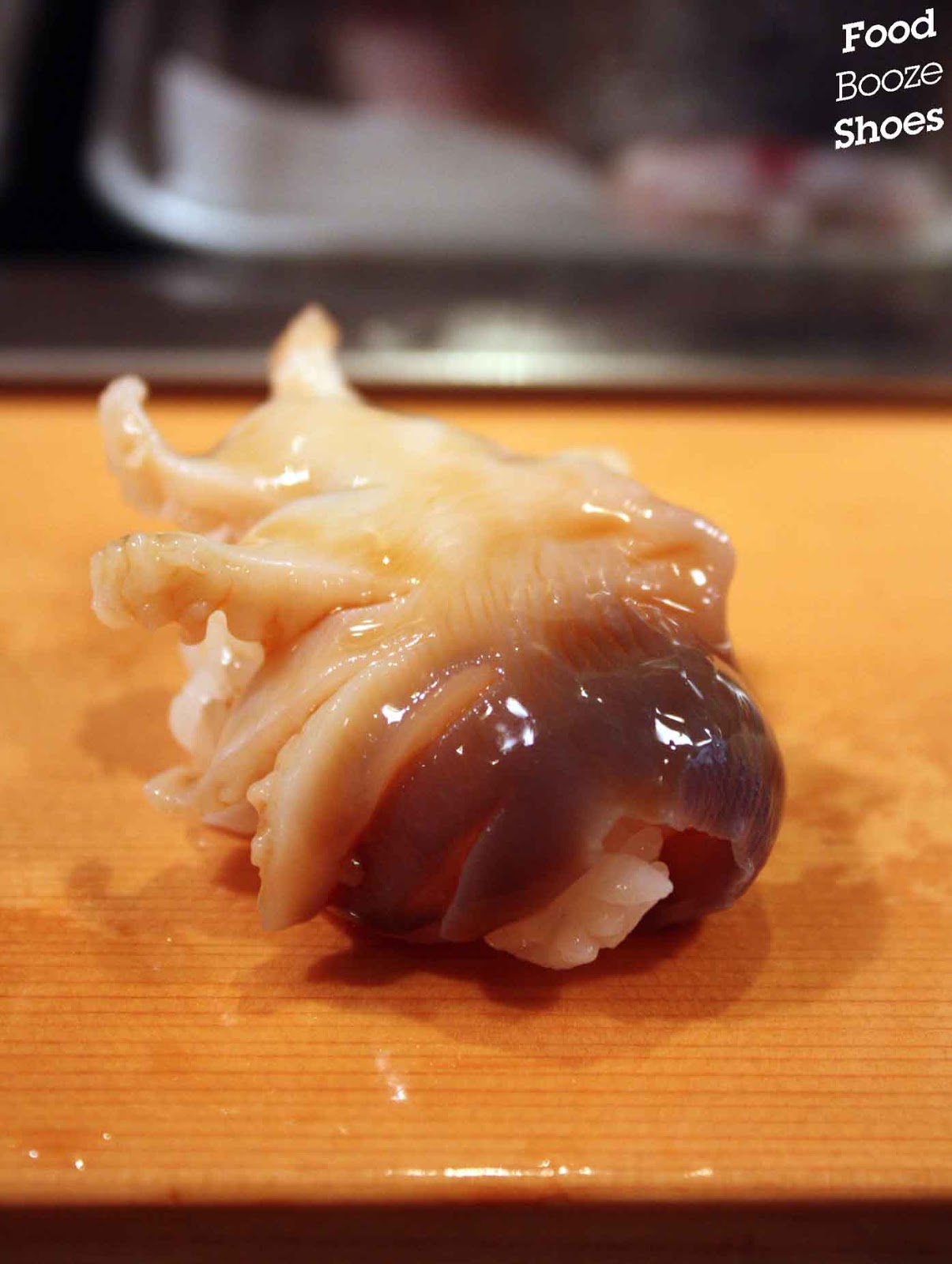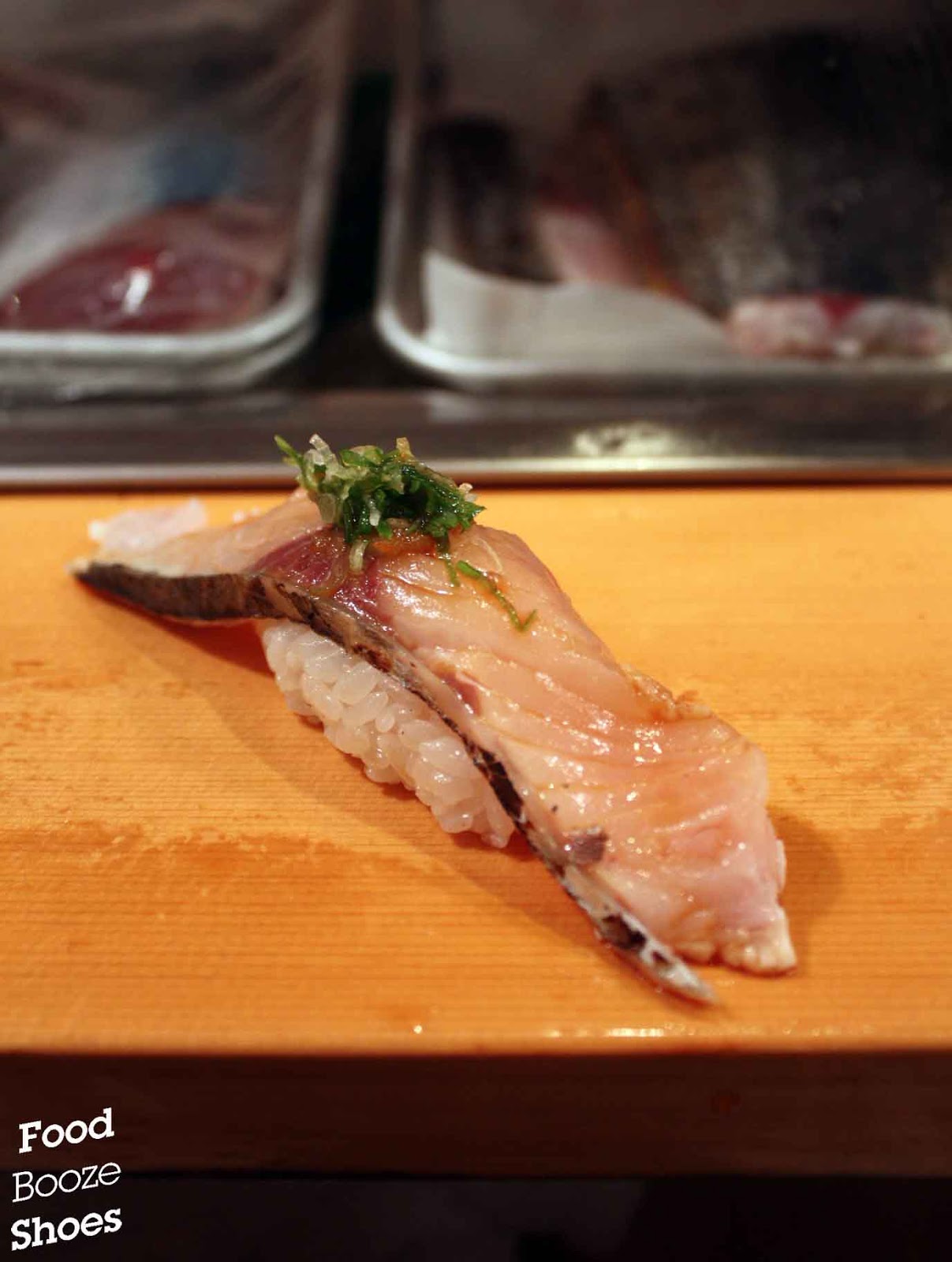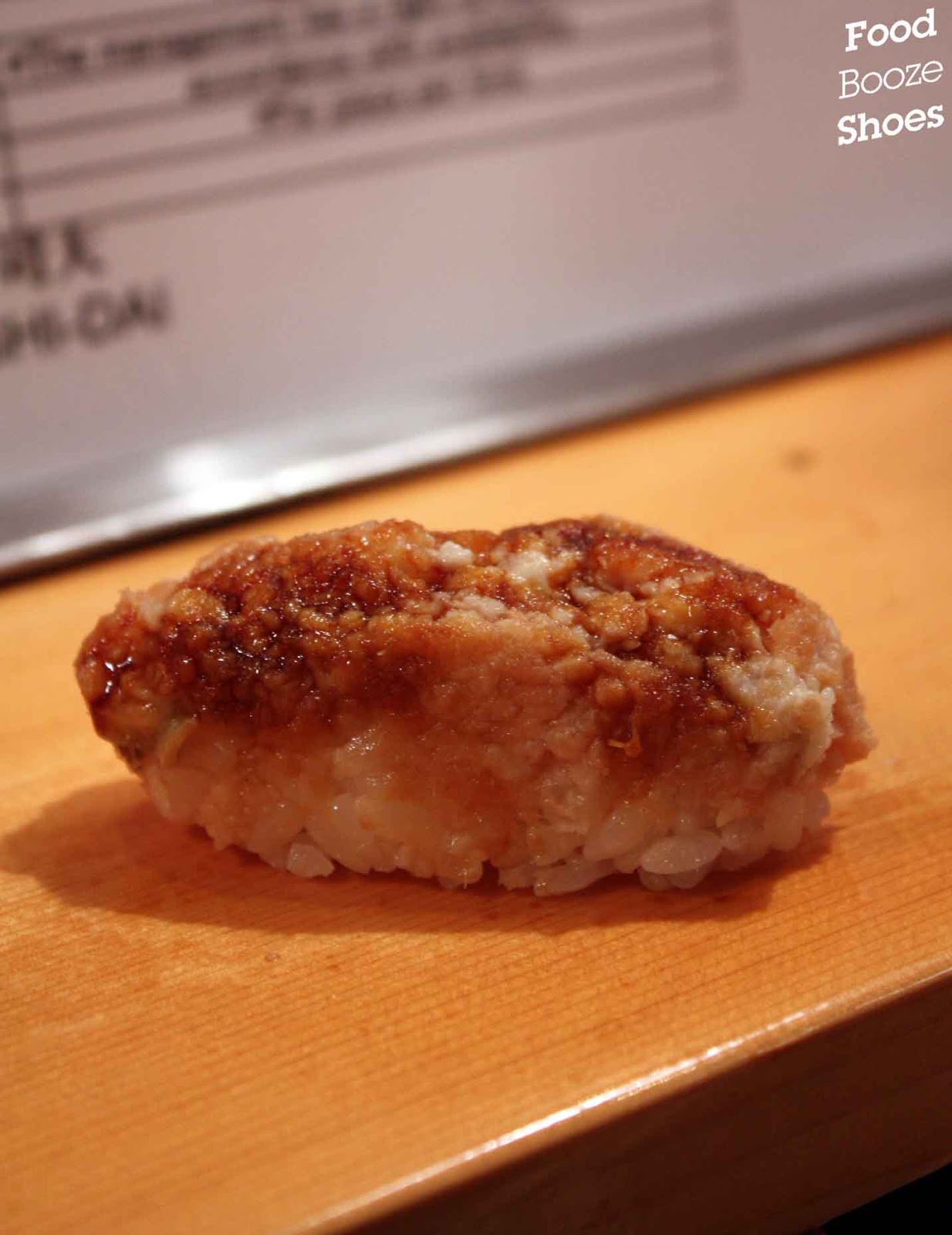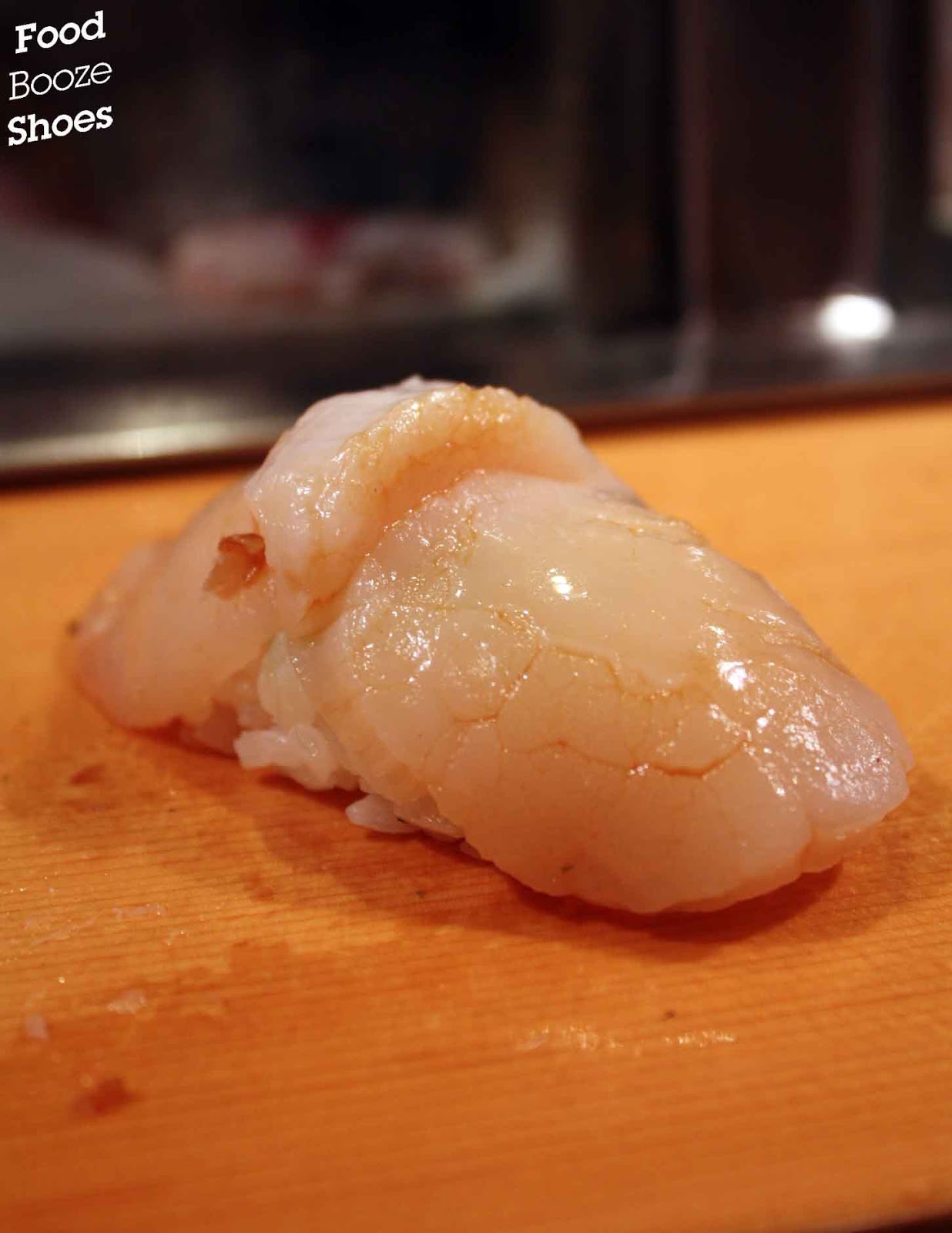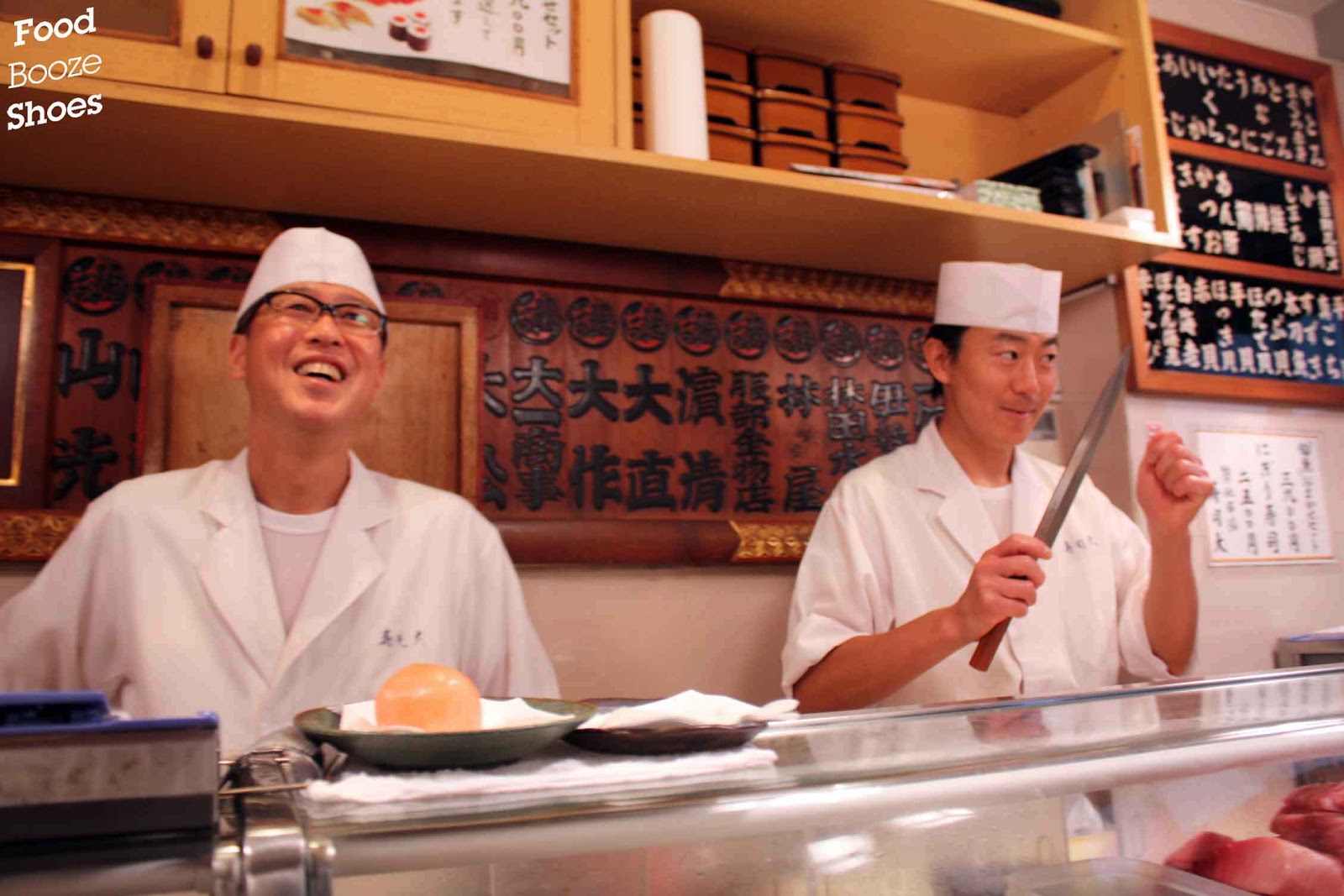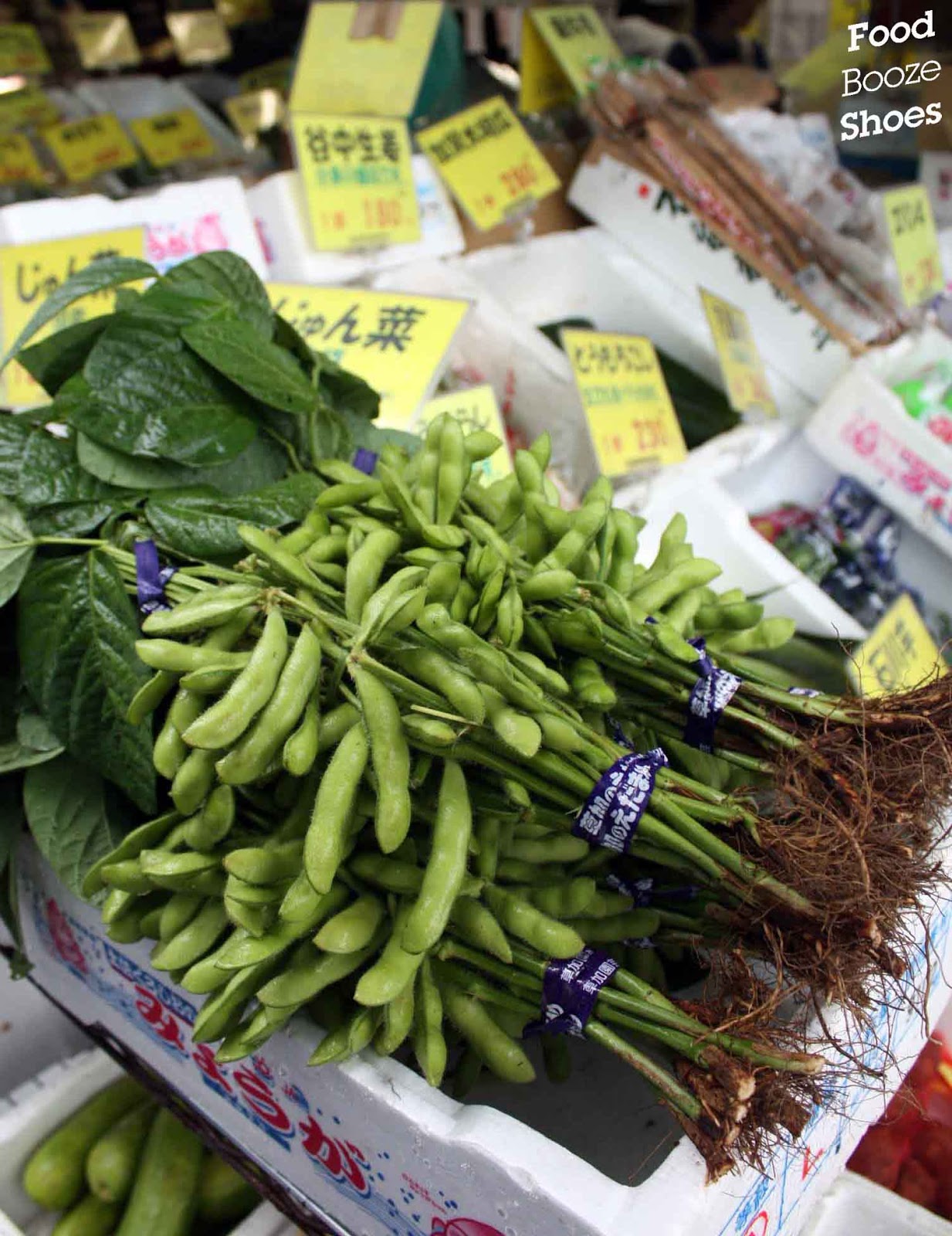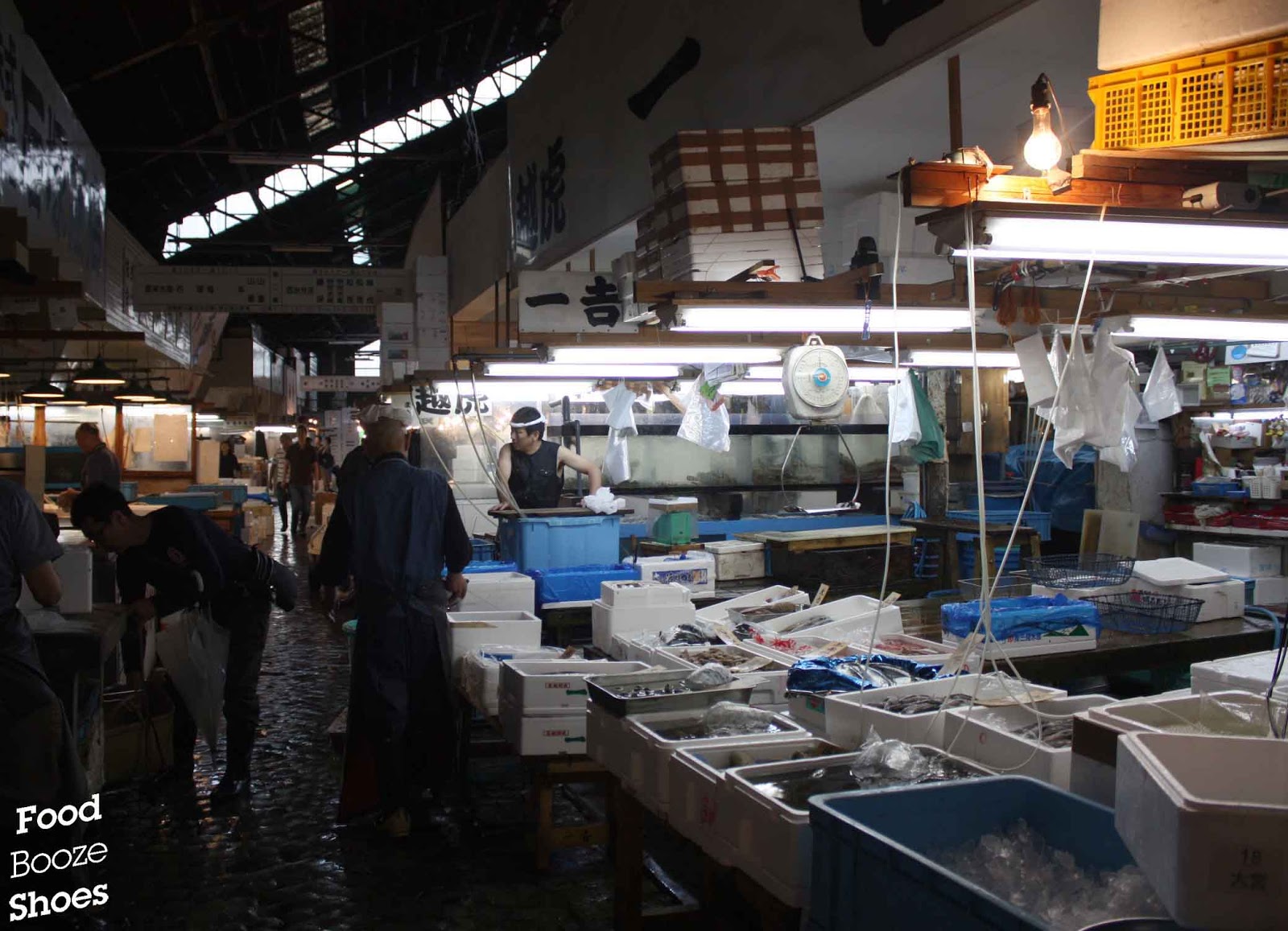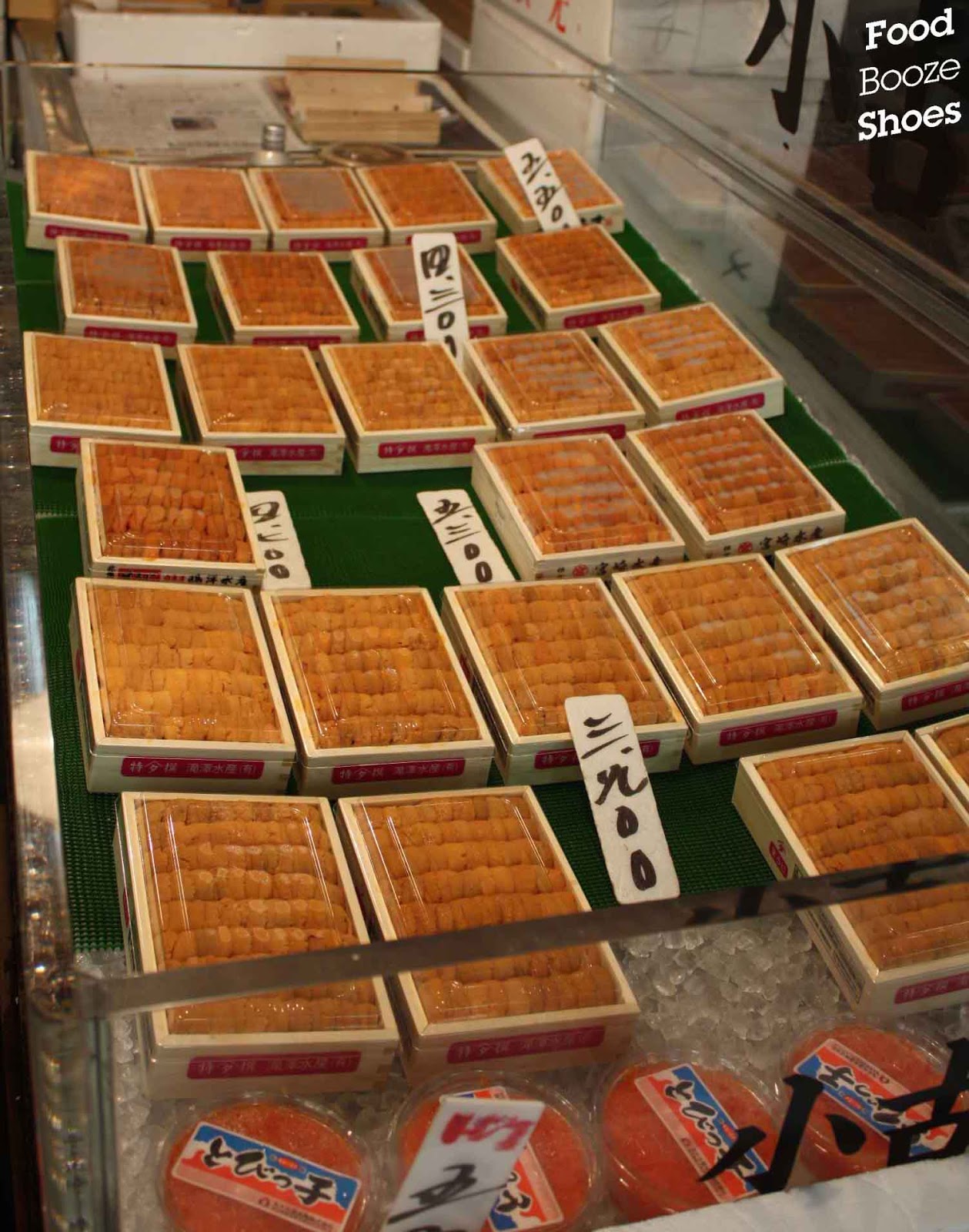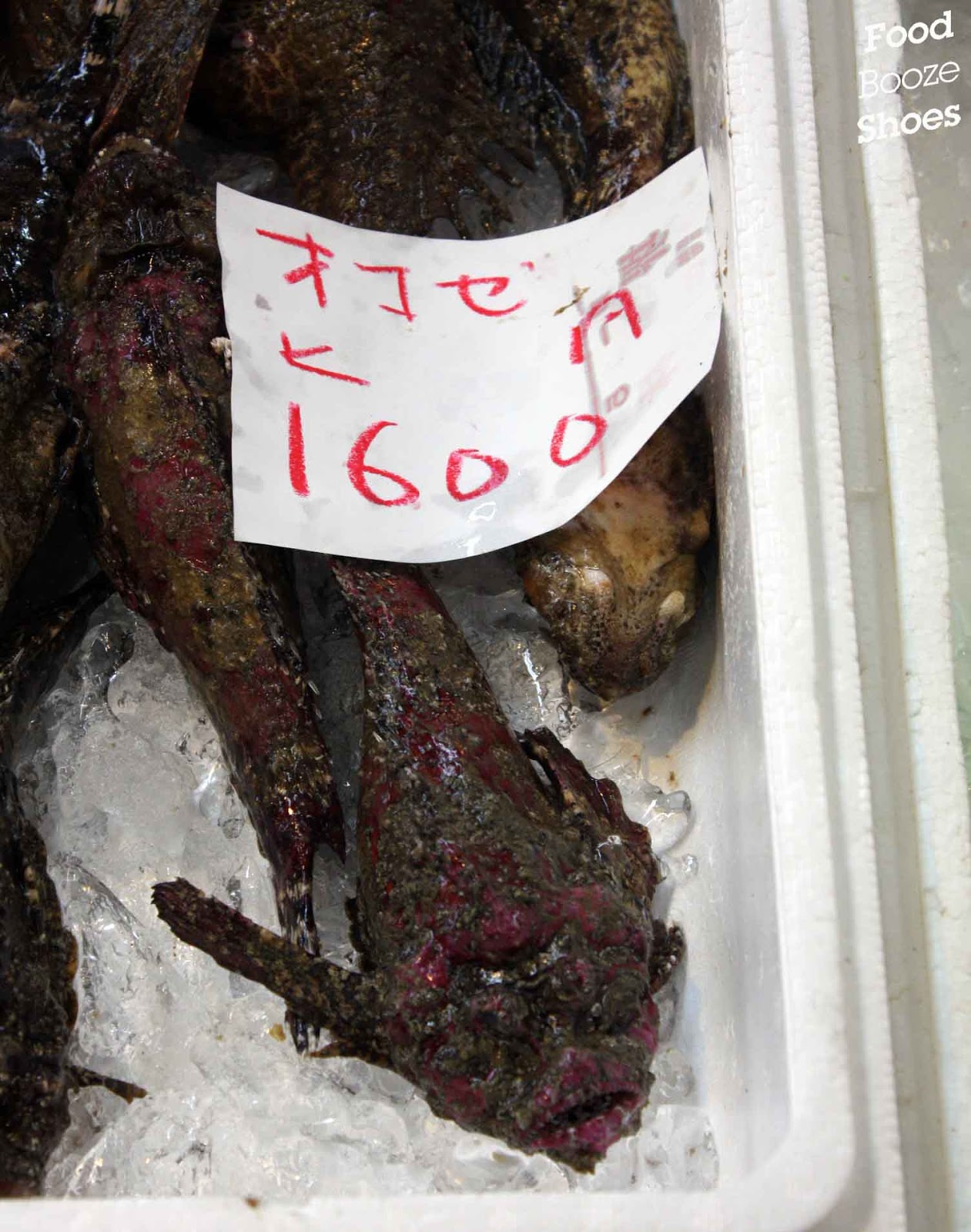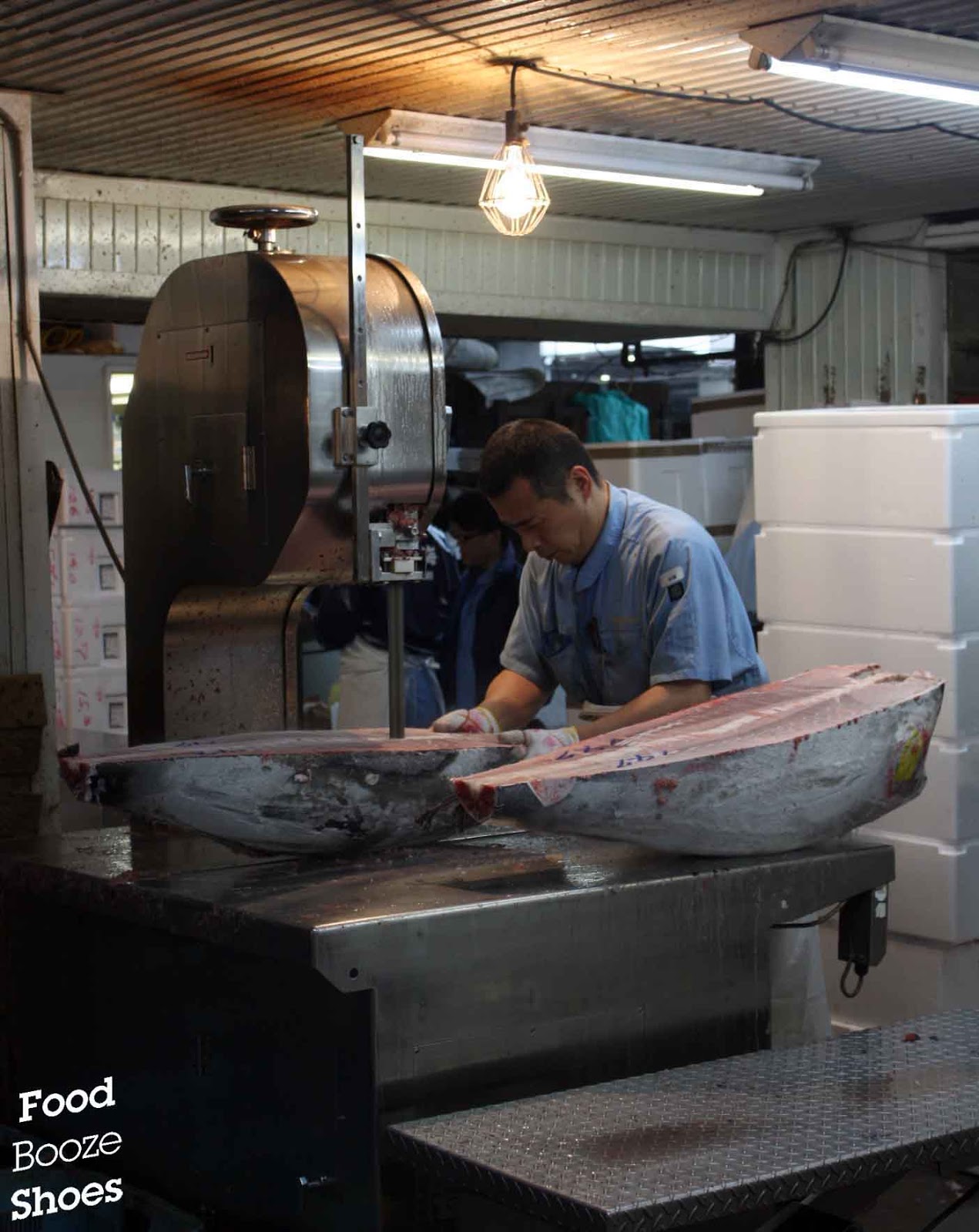Earlier this year I spent two-and-a-half weeks in Japan, eating and drinking my way through a destination I've wanted to visit for more than a decade. This is the twelfth (and
.
closure of Tokyo's iconic Tsukiji Fish Market, but visitors have approximately 12 months left to check out the world's largest wholesale fish markets in its current, slightly dilapidated form.
Visiting Tsukiji Fish Markets was around the top of my list of touristy things to do in Tokyo. We'd even booked accommodation in the Tsukiji area to increase our chances of seeing the tuna auctions, which at the time, limited the spots available for tourists to 120 people, allocated at 5am daily (I hear they're completed closed off to tourists at the moment).
As we walked up towards the Osakana Fukyu (Fish Information) Centre in the rain, there were already dejected tourists walking back towards us, letting us know that they were already too late for the 120 spots - at 5am!
![]() |
| Outer markets |
Similarly dejected and rather sleepy at that hour of the morning, we decided to wait around the fish markets to see the inner wholesale markets area, which tourists should not enter until after 9am.
While I had visions of running into Yoshikazu Ono (of three Michelin-starred
SukiyabashiJiro) shopping for the day's best catch, it wasn't to be.
![]() |
| Coffee shop in Tsukiji Fish Markets |
In the outer market area, where little restaurants sit next to a variety of produce and product stalls, we spotted a coffee shop that seemed caught in a time warp.
It was right near Sushi Dai; one of two renowned sushi restaurants at Tsukiji Fish Market where queues had already formed for breakfast service.
![]() |
| Milk coffee |
We pondered joining the queues over breakfast: a simple order of brewed coffee with milk and toast with jam and a boiled egg on the side.
![]() |
| Soft boiled egg |
![]() |
| Toast with jam and butter |
![]() |
| Restaurant queues |
Given the extraordinary efforts already made in waking up at that hour and getting to Tsukiji Fish Market in the drizzle, we joined the end of the queue at Sushi Dai.
It wasn't too cold a morning, but that didn't stop restaurant staff handing out foam cups of hot green tea to the waiting queues.
![]() |
| Sign for Sushi Dai |
It made more sense two hours later when we were still waiting in line, albeit now at the front of the queue with the 12-seater restaurant in view.
![]() |
| Sushi Dai entry |
There were two
omakase chef's menu sets on offer: an 11-piece or 7-piece offering. Everyone in our dining group of 12 went the larger
omakase set, as I suppose after two hours' waiting, one might as well.
![]() |
| Seated in Sushi Dai |
As soon as we entered the narrow restaurant, placing bags upon high shelves behind the counter seats, the wait was forgotten.
![]() |
| Seated at Sushi Dai |
Three sushi chefs - jolly, smiling and downright chirpy for that time of the day - welcomed every single diner with gusto, positioning
gari pickled ginger slices in front of everyone, as large cups of hot green tea were distributed.
![]() |
| Green tea |
The chefs checked diners' eating preferences, with one or two choosing to avoid
uni sea urchin roe but most generally keen to try whatever the chefs had in store for us.
![]() |
| Otoro - fatty tuna belly nigiri sushi |
We started with a bang:
otoro - the treasured and fattiest part of the the tuna belly. Looking more like a piece of rare steak, this was pure, soft creamy bliss with just a brush of soy sauce.
![]() |
| Hirame - flounder nigiri sushi |
![]() |
| Tamago - steamed rolled egg |
![]() |
| Seafood miso soup |
![]() |
| Uni - sea urchin roe genkan sushi |
![]() |
| Aji - horse mackerel nigiri sushi |
![]() |
| Clam nigiri sushi |
![]() |
| Akami - lean tuna nigiri sushi |
![]() |
| Amaebi - sweet prawn nigiri sushi |
![]() |
| Saba - Spanish mackerel nigiri sushi |
![]() |
| Anago - saltwater eel nigiri sushi |
![]() |
| Maki zushi: toro minced tuna belly and mentaiko marinated pollock roe with cucumber |
![]() |
| Hotate - scallop nigiri sushi |
At the end of this particular
omakase we were each allowed to select one more
nigiri-zushi of our own choosing
. I elected the
hotate scallop, which wasn't quite as sweet as I wanted it to be, while the
awabi abalone was only slightly chewy.
![]() |
| Awabi - abalone nigiri sushi |
![]() |
| Sushi chefs at Sushi Dai |
![]() |
| Sushi chefs at Sushi Dai |
![]() |
| Diners entering Sushi Dai |
We stumbled out of the restaurant, last in our group as we snapped photos with the chefs, extremely full and probably needing a lie-down. The
omakase is a large meal, especially for breakfast, meaning we skipped lunch that day.
![]() |
| Fresh edamame soy beans |
With a little more time before the inner fish market was officially open to tourists, we browsed the fresh food and knife stores in the outer section.
![]() |
| Trolley carts inside wholesale fish markets |
We probably snuck into the inner markets a little earlier than we should have, with plenty of hustle and bustle still around, though not so much wholesale or restaurant purchasers.
![]() |
| Inner wholesale fish markets |
![]() |
| Inner wholesale fish markets |
There were, however, various 'civilian' buyers looking for the freshest seafood for home meals; and snap-happy tourists, of course.
Some stores were already cleaning up from the morning's trade not much past 9am, but there was still plenty to see.
![]() |
| Hatahata fish |
![]() |
| Tako - octopus (red) |
![]() |
| Uni - sea urchin roe |
![]() |
| Ika - squid |
![]() |
Okoze - stonefish
(the ugliest fish I've ever seen, as well as the world's most venomous fish) |
![]() |
| Slicing a whole frozen tuna |
While we missed the tuna auctions, we almost went one better, spying a worker cutting up whole, frozen tuna which had been auctioned off to buyers.
![]() |
| Quartering tuna |
The electronic saw looked a little scary as he guided the huge hunks of fish: first removing the head, then halving and quartering the fish, and then removing the major bone.
![]() |
| Cutting tuna |
![]() |
| Toro - tuna belly |
Tsukiji Fish Markets is a photographers dream - albeit a wet and fishy one. See more photos of my Tsukiji Fish Market visit here on my
Facebook page.
![]() |
| Kinmedai - Alfonsino or red snapper |
Japan has firmly cemented its place on my must-return-to list. While speaking even a little of the language made my trip that much more fun (and funny, at times), the country's deep-seated appreciation for quality and sometimes perfection makes Japan, and particularly its cuisine, an enjoyable destination for most.
じゃね, 日本。


